Lorna - Interview
by Benjamin Howarth
published: 25 / 5 / 2013
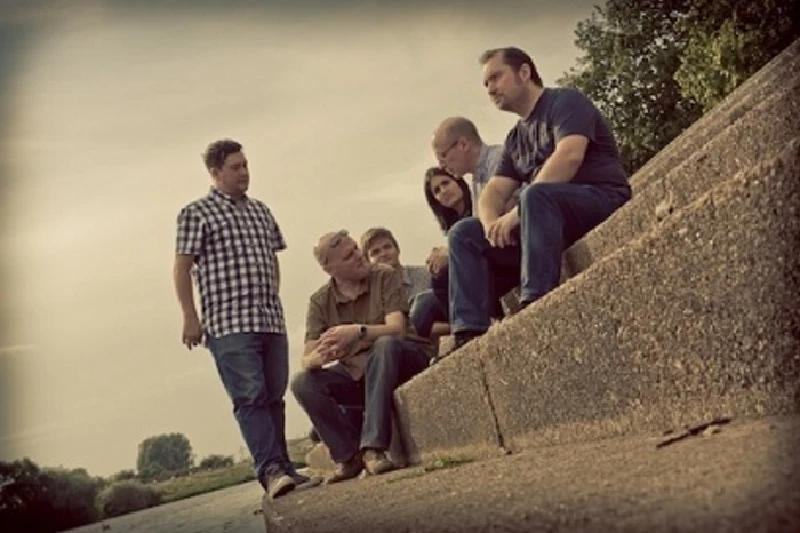
intro
Ben Howarth chats to Mark Rolfe, the front man with underrated Nottingham-based band Lorna about his band's unusual combination of influences and their recent fourth album, 'Heart on Wire'
I first encountered Lorna through a recommendation from Jason Gough – singer of Utah based slowcore band, Coastal. Despite being based on different sides of the Atlantic, the two bands had much in common, not least that they both featured husband and wife pairings in their line-ups. The two bands later became label mates, and – though Coastal have largely been on hiatus since 2004 – plan to perform together in Los Angeles during the summer. Lorna's sound combines slowcore and shoegaze influences, with folk, dreampop, hints of electronica and an obvious interest in classical music and film soundtracks. The band's main songwriter, Mark Rolfe, has also released two volumes of ambient music this year. Rolfe says of his solo work that “it's something I do for myself really. I have never pursued trying to release it on a label. When I have a week off, I might record an album of ambient music, put it up on a Friday night and then forget about it. If people find it, through Twitter or the Lorna website, then great, but Lorna is very much my main interest”. Each band member has a full time career, with Rolfe working as a music teacher. He described Lorna as “a very serious hobby”, but says that – especially after a good show or a successful rehearsal – the band feels much more important to him than a simple hobby. “As an older band, we all have responsibilities in life, and we couldn't survive on the little amount of money gigs and album sales bring in. There's a huge amount of realism involved.” I ask if he would be tempted if someone offered the band enough money to become a full-time concern. “That's exactly the problem we had in the past – that is what somebody did do!,” he answers. “Pretty much after we started, somebody did try to do that. The problem was me. I didn't want to change what we do. I didn't want to go into a studio and sound like a big rock band. I wanted to carry on making music in a small room in the middle of the night. Heavenly gave us a certain amount of money to go away and 'develop', and do an album for them. We did go into the studio with a good producer, luxurious conditions, but I was never really happy with it. We made a decision in 2002/3 to make the album ourselves and find a nice little indie to record it on”. Ten years later, Lorna have just released their fourth album (in addition to a handful of EPs.) Like the last two albums, it was released on the American label Words On Music. It was recently our Album of the Month, and will certainly be one of my albums of the year. I began my second interview with Lorna by asking about that new album. PB. Now that 'Heart On Wire' has been out for a little while, people have started to listen to it, and you've started to get feedback. How do you feel about it? MR: From a personal perspective, I am really satisfied – I think it's the best thing we've done. I wasn't too satisfied with the last album ('Writing Down Things ro Say', 2006 - Ed) – it wasn't as focused. The album we were all very proud of was our second ('Static Patterns and Souvenirs', 2005 -Ed). That was all recorded, like 'Heart On Wire', in a relatively short space of time and the songs all occupied a similar space. The next album had been intended to follow on from that, but it became a much more elongated process. We couldn't decide on the best songs or track orders. It was Okay, but it took so long that we basically reached the ninth song and decided it was complete. 'Heart On Wire' was a fresh start. We've found a direction now that we would like to continue and expand upon. PB: Did you change anything specifically in response to not being as happy with the last album? MR: Not deliberately, no. I began writing this album almost as soon as the last album came out, but then it went through so many changes that by the time we recorded it that the original plan for something very folky and stripped back had completely changed. All the acoustic guitars became electric, and all the whirly organs became analogue synths. PB: There was a long gap between the two albums... MR: Again, it wasn't a conscious decision. We took a bit of a break because we were finding it difficult to get together – we've all got reasonably intense jobs and some of us were starting families. At the beginning of 2012, we'd had the first version of the album demoed for a couple of years, but I don't think we did anything in 2011, just one gig. We had an email discussion, where I said that we'd not done anything for a couple of years and asked, “Are we going to commit to this, or are we going to knock it on the head?”, expecting everyone to say it had been too long and we should move on to other things, but actually everyone said we should make a real effort. We got back together and it just seemed to work. The album was recorded really quickly – finished in about four months. I would say that we never split up – far from it actually, I'm always writing songs. PB: Were you still recording at home? Was it all organised as a conscious recording session, or did some songs come out of experimentation? MR: We do everything on a Macbook, to be honest, so we take that everywhere. Sometimes we recorded in people's houses, and we recorded some in a church andsome in a studio so we could record in a live setting. But it was all mixed at home. Everything was consciously organised as a recording session – when I am doing things on my own, I just experiment and see what happens, but with the band we are too far apart so we have to agree that we will meet up to record a specific song or part. So it's not very spontaneous, I'm afraid. PB: So, how much of the album was from those initial demos and how much did you do after you'd recommitted to the band in 2012? MR: Five songs came from the initial sessions of 2009/10, and the rest of those songs we scrapped. We wrote songs like 'As She Goes By', 'Whatever Happened To Andie Walsh?' and 'What Took You So Long?' as we finished the album. We felt reinvigorated during the recording process, and just seemed to come up with better songs. Those we left off just seemed a bit old hat, to be honest. As we finished the album, we made more of an effort to come together and play as a whole band, and we wanted songs that had that whole-band sound, rather than being studio projects. We deliberately wrote songs that would complete it and make it an album as well. PB: You've got other musical projects as well. Does writing songs for Lorna change the way you write – do you write songs specifically for Lorna? MR: I deliberately write songs for Lorna. I have a certain template in mind and a way of thinking – things that I don't do when I write songs for other projects. I also think about what each band member might add, and – where otherwise I might add a bassline or a drum loop to a demo – it is helpful not to, as I don't want to get caught in one idea. I want to see what the other guys can put into it. PB: How much do the rest of the band change the songs, as opposed to what you expect when you wrote them? MR: The majority of the guys I have worked with for ten years at least, some since I was a teenager, so I have a fairly good idea of what they are going to do. But there are little differences – for example, I can't play the flute or play strings, and while I might be able to write for them as orchestral parts, I don't really write melodies for them. Also Andy (Bullock-Ed) is a very versatile bass player, and he also plays extra guitars as well – he usually pulls out a few surprises. PB: How did it work with your label, Words On Music? Do you have the kind of relationship with them where you can just send the finished product - “Oh by the way, here's a new album”. MR: We've always been in touch with Eric and Marc Ostermeier at the label. They don't pester us or set us deadlines, far from it, but they are always happy to hear new music. They had heard the demos that we did in 2009/10, but I think they were happier with the sings we recorded at the end of the process. PB: They are musicians as well, of course. I'm a big fan of Marc's band, Should. How much of an interest do they take in the sound. Do they make suggestions on tracks and arrangements? MR: They give a huge amount of feedback, which - I'll be honest - took me a little while to get used to. We released our first album on a different label, and they never commented on the track order or lengths of songs. Words On Music – they are two extremely intelligent businessmen and musicians. It is a very meticulously run label – they are both professors, and so much thought is put into what they release and how. There is a reason why they have lasted fifteen years – they always tell artists what to expect and are very honest. They would suggest changing songs, chopping out certain verses and so on. It took a while to get used to that, but for 'Heart On Wire' we took a conscious decision that we would listen to whatever they said. They really understand their audience, so we let them make the track ordering and selection decisions. It has also taken us a little while to realise that, with the amount of money and time they put into the label, they should have a say. Also, Should's last album was particularly inspiring to us. We'd be very happy to work with them for as long as we can – we're certainly working under the assumption that they will release the next Lorna album, though nothing has actually been discussed. PB: When I last interviewed you, several years ago now (after the release of 'Static Patterns and Magazines'), you said then that you had little interest in playing live. But, you have played a few gigs since the release of this album... MR: I never think about how the songs are going to sound live when we are recording them, I don't know if we are really daft for that. With this album, I wasn't sure if we would do any gigs, but rehearsals went well and we were offered a few gigs. I think playing live has got a bit easier, especially with loop machines and Macbooks, which mean you can trigger samples on stage, and I think we are a bit more dynamic and rockier when we play live. Playing live is fun – but I think the studio side is my main interest – creating music. But one thing we are planning for the next album is to rehearse the songs in advance, something we have never done. I think the idea is to get together and try some ideas out, but probably then record it in the same environment as we have before. As we've been rehearsing, we've noticed that we often come up with our best ideas in a 'live' setting, so the idea is to capture that at the start. That means re-thinking the planning stage, but probably then creating the final recordings in the same way. The last songs we wrote for the album were all a little bit more upbeat, with drone influences, and the first five or six songs we have written since then for the new album have all followed on like that. PB: Is there now an ambition for Lorna to do more? Would you be happy for it to be another long wait until the next album, or would you hope to have something within, say, two years? MR: I think we have all been really stimulated by this album. Certainly, we were far more invigorated than for the last album. We didn't have a release party and we didn't really do anything to push it ourselves – I don't think we even had our own website at that time. Now, I suppose we are back to where we were seven years ago with 'Static Patterns and Magazines', where we are really excited about making music and releasing records. PB: Finally – a question I always ask to tie up interviews – are there any outstanding ambitions you have for Lorna. Anything you really want to achieve? MR: I think it would be nice to be able to play some larger gigs, and to play with some of our favourite bands as well. We have been lucky to play with some bands we really look up to the past – and that is the kind of thing you dream of when you first start a band. But I'm not going to bank on it! It is all about making music really, and if anything else materialises that would be great. PB: Thank you.
Band Links:-
https://www.facebook.com/pages/LornaUK/11233842989http://www.lornatheband.com/
https://twitter.com/lornatheband
Picture Gallery:-
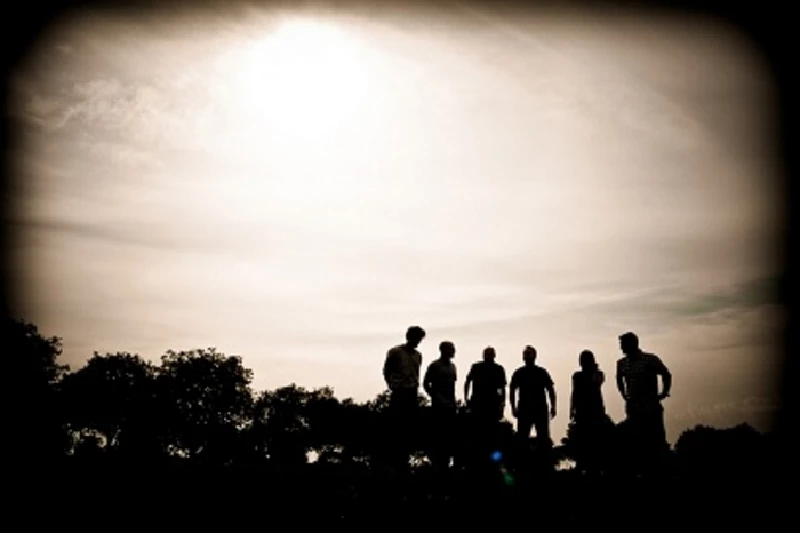
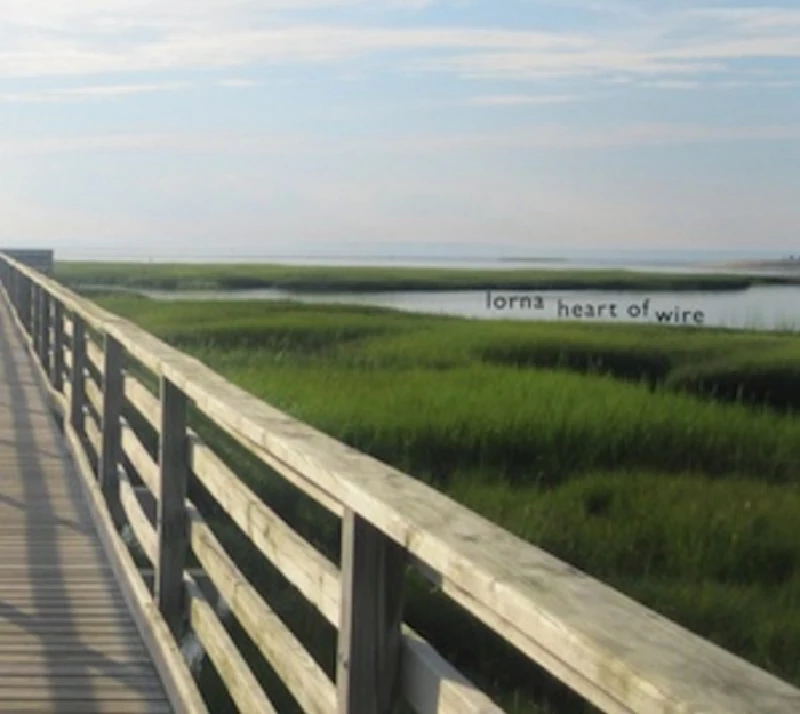
interviews |
|
Interview (2005) |
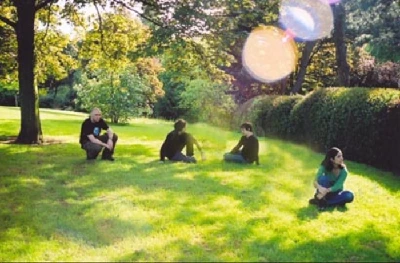
|
| Nottingham-based band Lorna's new album is more like a film score than an indie guitar albums and is a combination of shoegaze, alt.country and jazz. Ben Howarth talks band members Mark Rolfe and Sharon Cohen about it and touring America |
live reviews |
|
(With the Amber Heard). Bodega, Nottingham, 17/7/2015 |
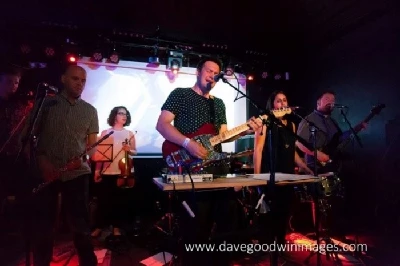
|
| Dave Goodwin enjoys a superb night at the Bodega in `Nottingham with two local acts, Lorna and the Amber Herd |
soundcloud
reviews |
|
Like John Candy (2015) |
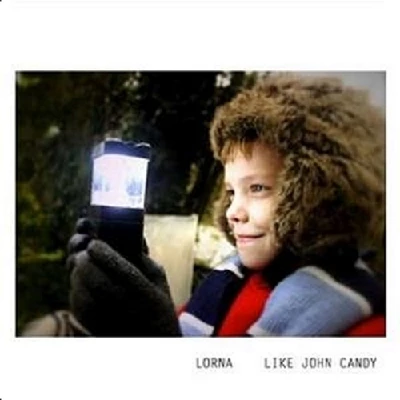
|
| First-rate download only Christmas single from Nottingham rising indie talents, Lorna |
| London’s Leaving Me (2015) |
| Heart of Wire (2013) |
| Writing Down Things to Say (2009) |
| Static Patterns And Souvenirs (2005) |
most viewed articles
current edition
Carl Ewens - David Bowie 1964 to 1982 On Track: Every Album, Every SongArmory Show - Interview with Richard Jobson
John McKay - Interview
Colin Blunstone - Thalia Hall, Chicago, 16/7/2025
Bathers - Photoscapes 1
Billie Eilish - O2 Arena, London, 10/7/2025
Loft - Interview
Visor Fest - Valencia, Spain, 26/9/2025...27/9/2025
Sir Tim Rice - Interview
Robert Forster - Interview
previous editions
Manic Street Preachers - (Gig of a Lifetime) Millennium Stadium, Cardiff, December 1999Heavenly - P.U.N.K. Girl EP
Beautiful South - Ten Songs That Made Me Love...
Peter Perrett - In Dreams Begin Responsibilities Interview Part One
Boomtown Rats - Ten Songs That Made Me Love....
Oasis - Oasis, Earl's Court, London, 1995
Coldplay - Wembley Arena. London, 16/8/2022
Trudie Myerscough-Harris - Interview
Prolapse - Interview
Pixies - Ten Songs That Made Me Love...
most viewed reviews
current edition
Davey Woodward - Mumbo in the JumboSick Man of Europe - The Sick Man of Europe
Lucy Spraggan - Other Sides of the Moon
Amy Macdonald - Is This What You've Been Waiting For?
Phew, Erika Kobayashi,, Dieter Moebius - Radium Girls
Suzanne Vega - Flying With Angels
Bush - I Beat Loneliness
Alice Cooper - The Revenge of Alice Cooper
Blueboy - 2
Cynthia Erivo - I Forgive You
Pennyblackmusic Regular Contributors
Adrian Janes
Amanda J. Window
Andrew Twambley
Anthony Dhanendran
Benjamin Howarth
Cila Warncke
Daniel Cressey
Darren Aston
Dastardly
Dave Goodwin
Denzil Watson
Dominic B. Simpson
Eoghan Lyng
Fiona Hutchings
Harry Sherriff
Helen Tipping
Jamie Rowland
John Clarkson
Julie Cruickshank
Kimberly Bright
Lisa Torem
Maarten Schiethart